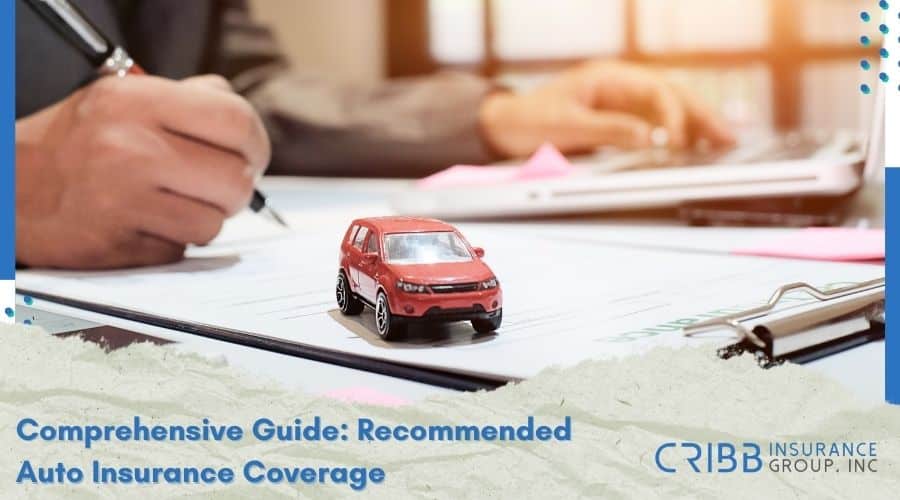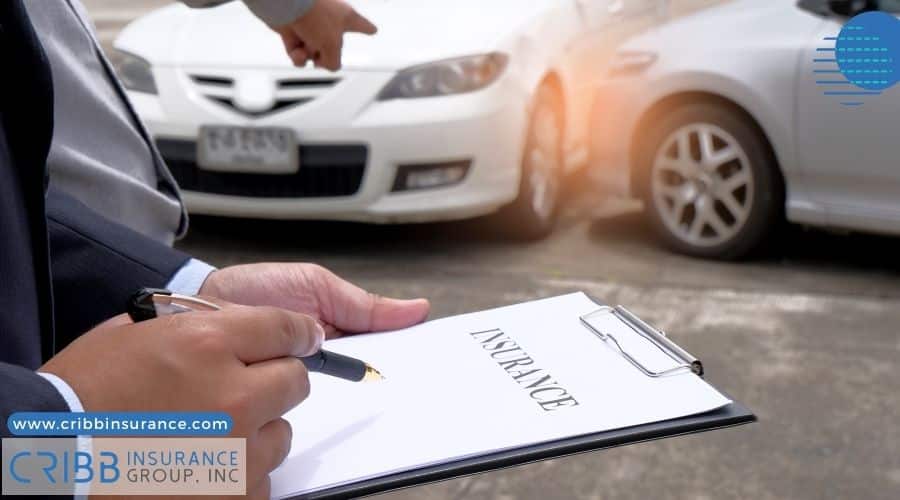Auto insurance is a crucial safeguard for every car owner. It provides financial protection in case of accidents, theft, or damage, ensuring that unexpected events don’t lead to overwhelming expenses. Determining the right amount of coverage, however, can be a challenge. This guide aims to help you understand the recommended auto insurance coverage for your needs, empowering you to make informed decisions and drive with peace of mind.
Choosing the right insurance coverage involves more than just meeting legal requirements. It’s about finding a balance between adequate protection and affordability. By the end of this guide, you’ll have a clearer understanding of the various types of coverage available and how to tailor them to your specific situation. Whether you’re a new driver or looking to reassess your current policy, this comprehensive guide will provide you with the insights you need to secure the best possible coverage.
Understanding Auto Insurance Coverage
Navigating the world of auto insurance can seem complicated, but it’s all about ensuring you’re protected on the road. This section breaks down the essential components of auto insurance, helping you grasp the types of coverage available and how much you need. Understanding these basics is the first step toward making informed decisions about your insurance policy.
Types of Auto Insurance Coverage
Auto insurance comes in various forms, each designed to cover different aspects of your driving and car ownership experience. Here’s a breakdown of the main types:
- Liability Coverage: This is the foundation of any auto insurance policy. It covers the costs if you’re responsible for an accident, including other people’s medical expenses and property damage.
- Collision Coverage: Pays for damage to your car from a collision, regardless of who’s at fault. It’s essential if you have a newer or more valuable car.
- Comprehensive Coverage: Covers non-collision-related damage to your car, such as theft, fire, or natural disasters. It’s often required if you have a loan or lease on your vehicle.
- Uninsured/Underinsured Motorist Coverage: Protects you if you’re in an accident caused by a driver with no or insufficient insurance. This coverage is increasingly important as more drivers forego insurance.
- Personal Injury Protection (PIP): Covers medical expenses for you and your passengers, regardless of who’s at fault. It’s mandatory in some states and optional in others.
Each type of coverage offers different levels of protection and comes with its own cost. Understanding these options will help you make an informed decision about what’s best for you.
How Much Coverage Do You Need?
Determining the right amount of coverage depends on various factors, including your state’s legal requirements, the value of your vehicle, and your financial situation. Here are some guidelines:
- State Minimums: Start by knowing your state’s minimum insurance requirements. While meeting these minimums is legally necessary, they often don’t provide adequate protection.
- Asset Protection: Consider your assets and income when choosing liability limits. If you have significant assets, you may need higher limits to protect them in case of a lawsuit.
- Vehicle Value: For collision and comprehensive coverage, consider the value of your car. If you have a newer or more expensive vehicle, you’ll want more coverage to protect your investment.
- Deductibles: Choosing higher deductibles can lower your premiums, but make sure you can afford the out-of-pocket costs in case of an accident.
Ultimately, the right coverage for you balances protection and affordability. Regularly reviewing your coverage and adjusting it as your circumstances change is essential to ensure you’re always adequately protected.
Factors Influencing Your Coverage Needs
Your ideal auto insurance coverage isn’t a one-size-fits-all solution; it’s influenced by several personal factors. Understanding how your vehicle’s value, your driving habits, and your financial situation affect your insurance needs is crucial. Let’s explore these factors to help you tailor your coverage more effectively.
Your Vehicle’s Value and Type
The type and value of your vehicle play a significant role in determining your insurance coverage needs:
- High-Value Vehicles: If you own a luxury or high-performance car, you’ll likely need more comprehensive coverage to protect your investment.
- Older Vehicles: For older cars, you might consider reducing your coverage, as the cost of insurance might outweigh the vehicle’s value.
- Vehicle Use: The way you use your car (e.g., daily commuting, business use, or occasional driving) can also impact the type of coverage that’s best for you.
Assessing your vehicle’s value and usage will guide you in choosing the right coverage levels.
Your Driving Habits and History
Your driving habits and history are key factors insurers consider when determining your coverage needs and premiums:
- Mileage: Frequent drivers covering many miles annually might require more robust coverage due to the increased risk of accidents.
- Driving Record: A history of accidents or traffic violations can lead to higher premiums and the need for more extensive coverage.
- Parking Location: Where you park your car (e.g., in a garage, on the street, or in a high-crime area) can also influence your insurance needs.
Understanding how your driving habits and history affect your insurance can help you make informed decisions about your coverage levels.
Your Financial Situation and Assets
When it comes to auto insurance, your financial situation and the assets you need to protect are crucial considerations:
- Asset Protection: If you have significant assets, such as a home or savings, you’ll want enough liability coverage to protect these in case you’re at fault in a costly accident.
- Budget Constraints: If you’re on a tight budget, you might opt for higher deductibles to lower your premiums, but ensure you can afford the out-of-pocket costs if an accident occurs.
- Loan or Lease: If you have a loan or lease on your vehicle, your lender may require specific coverage types and limits to protect their investment.
By evaluating your financial situation and assets, you can determine the right balance between coverage and cost, ensuring you’re adequately protected without overpaying for insurance.
Recommended Coverage for Different Scenarios
The ideal auto insurance coverage can vary significantly depending on your specific circumstances. In this section, we’ll explore how different scenarios, such as owning a new or used car and being a high-risk driver, can influence the type and amount of coverage you should consider.
New vs. Used Cars
The age and condition of your vehicle play a significant role in determining your insurance needs:
- New Cars: For new or expensive vehicles, comprehensive and collision coverage are recommended to protect against damage and theft. You might also consider gap insurance to cover the difference between the car’s value and what you owe on a loan if it’s totaled.
- Used Cars: For older vehicles, you might opt for lower levels of collision or comprehensive coverage, as the cost of insurance might outweigh the value of the car. Liability coverage remains essential, regardless of the vehicle’s age.
Tailoring your coverage based on the age and value of your car ensures you’re not under or over-insured.
High-Risk Drivers
If you’re considered a high-risk driver due to a history of accidents, traffic violations, or other factors, your insurance needs and premiums will be affected:
- Higher Premiums: High-risk drivers often face higher insurance premiums due to the increased likelihood of filing a claim.
- Increased Coverage: High-risk drivers should have higher liability limits to protect against potential large claims.
- Specialized Insurers: Some insurance companies specialize in high-risk coverage, offering policies tailored to your specific situation.
Understanding how your risk profile impacts your insurance can help you make informed decisions about your coverage and potentially find ways to lower your risk and premiums over time.
Families with Teenage Drivers
Adding a teenage driver to your auto insurance policy can significantly impact your coverage needs and premiums:
- Higher Risk: Teen drivers are statistically more likely to be involved in accidents, leading to higher insurance costs.
- Adequate Liability Coverage: It’s essential to have sufficient liability coverage to protect your assets in case your teen is at fault in a serious accident.
- Discounts and Incentives: Look for insurers offering good student discounts, safe driver programs, or other incentives that can help offset the increased costs.
Ensuring your policy adequately covers your teenage driver while seeking out ways to minimize the financial impact is crucial for families with young drivers.
Reducing Costs Without Compromising Coverage
While ensuring adequate protection is paramount, there are ways to reduce your auto insurance costs without sacrificing coverage. This section explores strategies to lower your premiums while maintaining the necessary protection for your vehicle and financial well-being.
Shopping for Competitive Rates
One of the most effective ways to reduce your insurance costs is to shop around and compare rates from different insurers. Here’s how:
- Get Multiple Quotes: Obtain quotes from several insurance companies to compare rates and coverage options.
- Compare Coverage Details: Ensure you’re comparing similar coverage levels to make an accurate assessment.
- Consider Online Insurers: Online insurance companies often offer competitive rates due to lower overhead costs.
- Check Financial Stability: Choose insurers with good financial stability ratings to ensure they can pay out claims.
By taking the time to shop around, you can find the best rates for the coverage you need.
Taking Advantage of Discounts
Insurers offer a variety of discounts that can help lower your premiums. Some common discounts include:
- Multi-car Discount: If you insure more than one vehicle with the same company, you may qualify for a discount.
- Safe Driver Discount: Maintaining a clean driving record can earn you a discount on your premiums.
- Defensive Driving Courses: Completing an approved defensive driving course can lead to savings on your insurance.
- Good Student Discount: For families with teenage drivers, a good student discount can help offset the higher costs.
- Safety Features: Vehicles equipped with safety features like airbags, anti-lock brakes, and anti-theft devices may qualify for discounts.
Make sure to ask your insurer about available discounts and how you can qualify for them.
Increasing Deductibles
Another strategy to lower your auto insurance premiums is to increase your deductibles. A deductible is the amount you pay out of pocket before your insurance coverage kicks in after an accident or loss. Here’s how it works:
- Lower Premiums: By choosing a higher deductible, you can significantly reduce your monthly or annual premiums. This is because you’re assuming more of the financial risk yourself.
- Risk vs. Reward: It’s important to weigh the potential savings on premiums against the risk of having to pay a higher deductible if you file a claim. Make sure the deductible amount is something you can afford in case of an accident.
- Emergency Fund: If you decide to increase your deductibles, it’s a good idea to have an emergency fund set aside to cover the higher out-of-pocket costs in the event of a claim.
By carefully considering your financial situation and risk tolerance, increasing your deductibles can be an effective way to save money on your auto insurance.
Securing Your Peace of Mind
Choosing the right auto insurance coverage is essential for protecting yourself, your loved ones, and your assets on the road. By understanding the different types of coverage, assessing your personal needs, and exploring ways to reduce costs without compromising protection, you can find a policy that offers peace of mind and financial security. Remember, the goal of auto insurance is not just to meet legal requirements but to ensure that you’re adequately covered in any situation.
Regularly reviewing your coverage and making adjustments as needed is crucial to keeping your insurance aligned with your current needs. Life changes, such as buying a new car, moving to a different state, or adding a teenage driver to your policy, can all impact your insurance needs. By staying informed and proactive about your auto insurance coverage, you can drive with confidence, knowing that you’re prepared for whatever comes your way.
Frequently Asked Questions
Can I change my coverage after purchasing a policy?
Yes, you can adjust your coverage as your needs change. It’s a good idea to review your policy annually or after significant life events.
What is gap insurance, and do I need it?
Gap insurance covers the difference between your car’s actual cash value and what you owe on a loan or lease if it’s totaled. It’s recommended for new or financed vehicles.
How do traffic violations affect my insurance rates?
Traffic violations can lead to higher premiums, as insurers view them as indicators of risky driving behavior. The impact varies depending on the violation and insurer.
What happens if I’m hit by an uninsured driver?
Uninsured motorist coverage can protect you in this scenario, covering your medical expenses and, in some cases, damage to your vehicle.
How can I ensure I’m getting the best deal on my insurance?
Regularly compare quotes, ask about discounts, and review your coverage needs to ensure you’re getting the best value for your insurance.
Secure Your Peace of Mind with Cribb Insurance Group Inc
Ready to ensure your auto insurance coverage meets your needs? Contact Cribb Insurance Group Inc in Bentonville today. Our dedicated team will work with you to assess your unique situation, answer any questions, and find the coverage that provides the best protection at the best value. Don’t wait until it’s too late. Call us now at (479) 286- 1066 and drive with confidence, knowing you’re backed by comprehensive coverage tailored just for you.



